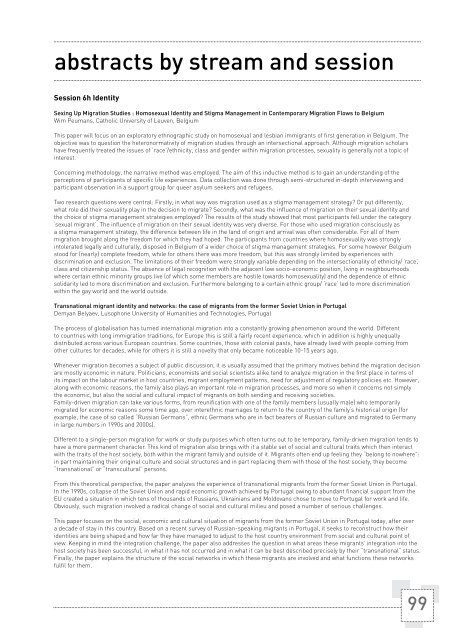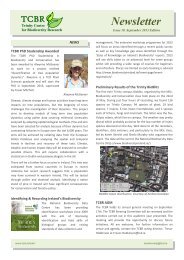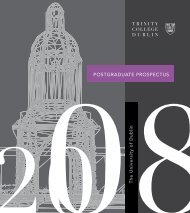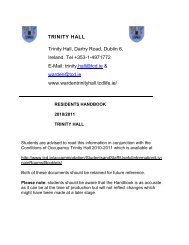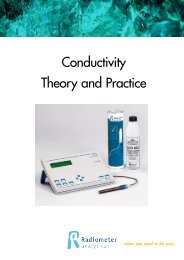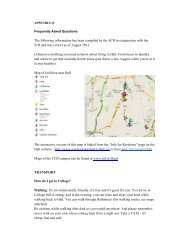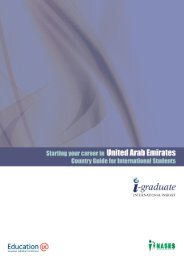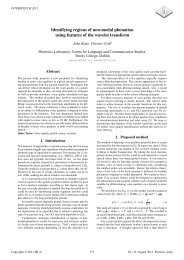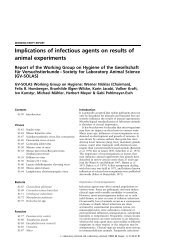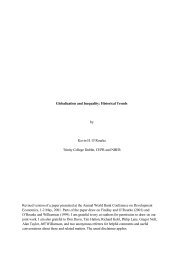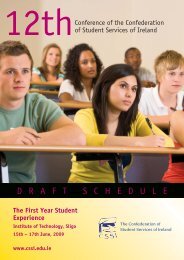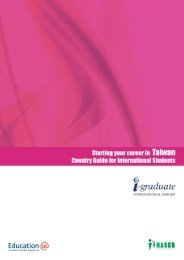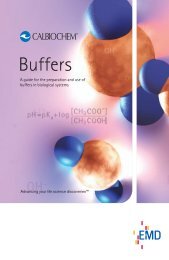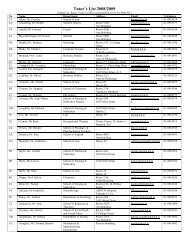Conference Programme (PDF, 1019KB) - Trinity College Dublin
Conference Programme (PDF, 1019KB) - Trinity College Dublin
Conference Programme (PDF, 1019KB) - Trinity College Dublin
Create successful ePaper yourself
Turn your PDF publications into a flip-book with our unique Google optimized e-Paper software.
abstracts by stream and session<br />
Session 6h Identity<br />
Sexing Up Migration Studies : Homosexual Identity and Stigma Management in Contemporary Migration Flows to Belgium<br />
Wim Peumans, Catholic University of Leuven, Belgium<br />
This paper will focus on an exploratory ethnographic study on homosexual and lesbian immigrants of first generation in Belgium. The<br />
objective was to question the heteronormativity of migration studies through an intersectional approach. Although migration scholars<br />
have frequently treated the issues of ‘race’/ethnicity, class and gender within migration processes, sexuality is generally not a topic of<br />
interest.<br />
Concerning methodology, the narrative method was employed. The aim of this inductive method is to gain an understanding of the<br />
perceptions of participants of specific life experiences. Data collection was done through semi-structured in-depth interviewing and<br />
participant observation in a support group for queer asylum seekers and refugees.<br />
Two research questions were central: Firstly, in what way was migration used as a stigma management strategy? Or put differently,<br />
what role did their sexuality play in the decision to migrate? Secondly, what was the influence of migration on their sexual identity and<br />
the choice of stigma management strategies employed? The results of the study showed that most participants fell under the category<br />
‘sexual migrant’. The influence of migration on their sexual identity was very diverse. For those who used migration consciously as<br />
a stigma management strategy, the difference between life in the land of origin and arrival was often considerable. For all of them<br />
migration brought along the freedom for which they had hoped. The participants from countries where homosexuality was strongly<br />
intolerated legally and culturally, disposed in Belgium of a wider choice of stigma management strategies. For some however Belgium<br />
stood for (nearly) complete freedom, while for others there was more freedom, but this was strongly limited by experiences with<br />
discrimination and exclusion. The limitations of their freedom were strongly variable depending on the intersectionality of ethnicity/ ‘race’,<br />
class and citizenship status. The absence of legal recognition with the adjacent low socio-economic position, living in neighbourhoods<br />
where certain ethnic minority groups live (of which some members are hostile towards homosexuality) and the dependence of ethnic<br />
solidarity led to more discrimination and exclusion. Furthermore belonging to a certain ethnic group/ ‘race’ led to more discrimination<br />
within the gay world and the world outside.<br />
Transnational migrant identity and networks: the case of migrants from the former Soviet Union in Portugal<br />
Demyan Belyaev, Lusophone University of Humanities and Technologies, Portugal<br />
The process of globalisation has turned international migration into a constantly growing phenomenon around the world. Different<br />
to countries with long immigration traditions, for Europe this is still a fairly recent experience, which in addition is highly unequally<br />
distributed across various European countries. Some countries, those with colonial pasts, have already lived with people coming from<br />
other cultures for decades, while for others it is still a novelty that only became noticeable 10-15 years ago.<br />
Whenever migration becomes a subject of public discussion, it is usually assumed that the primary motives behind the migration decision<br />
are mostly economic in nature. Politicians, economists and social scientists alike tend to analyze migration in the first place in terms of<br />
its impact on the labour market in host countries, migrant employment patterns, need for adjustment of regulatory policies etc. However,<br />
along with economic reasons, the family also plays an important role in migration processes, and more so when it concerns not simply<br />
the economic, but also the social and cultural impact of migrants on both sending and receiving societies.<br />
Family-driven migration can take various forms, from reunification with one of the family members (usually male) who temporarily<br />
migrated for economic reasons some time ago, over interethnic marriages to return to the country of the family’s historical origin (for<br />
example, the case of so called “Russian Germans”, ethnic Germans who are in fact bearers of Russian culture and migrated to Germany<br />
in large numbers in 1990s and 2000s).<br />
Different to a single-person migration for work or study purposes which often turns out to be temporary, family-driven migration tends to<br />
have a more permanent character. This kind of migration also brings with it a stable set of social and cultural traits which then interact<br />
with the traits of the host society, both within the migrant family and outside of it. Migrants often end up feeling they “belong to nowhere”:<br />
in part maintaining their original culture and social structures and in part replacing them with those of the host society, they become<br />
“transnational” or “transcultural” persons.<br />
From this theoretical perspective, the paper analyzes the experience of transnational migrants from the former Soviet Union in Portugal.<br />
In the 1990s, collapse of the Soviet Union and rapid economic growth achieved by Portugal owing to abundant financial support from the<br />
EU created a situation in which tens of thousands of Russians, Ukrainians and Moldovans chose to move to Portugal for work and life.<br />
Obviously, such migration involved a radical change of social and cultural milieu and posed a number of serious challenges.<br />
This paper focuses on the social, economic and cultural situation of migrants from the former Soviet Union in Portugal today, after over<br />
a decade of stay in this country. Based on a recent survey of Russian-speaking migrants in Portugal, it seeks to reconstruct how their<br />
identities are being shaped and how far they have managed to adjust to the host country environment from social and cultural point of<br />
view. Keeping in mind the integration challenge, the paper also addresses the question in what areas these migrants’ integration into the<br />
host society has been successful, in what it has not occurred and in what it can be best described precisely by their “transnational” status.<br />
Finally, the paper explains the structure of the social networks in which these migrants are involved and what functions these networks<br />
fulfil for them.<br />
99


